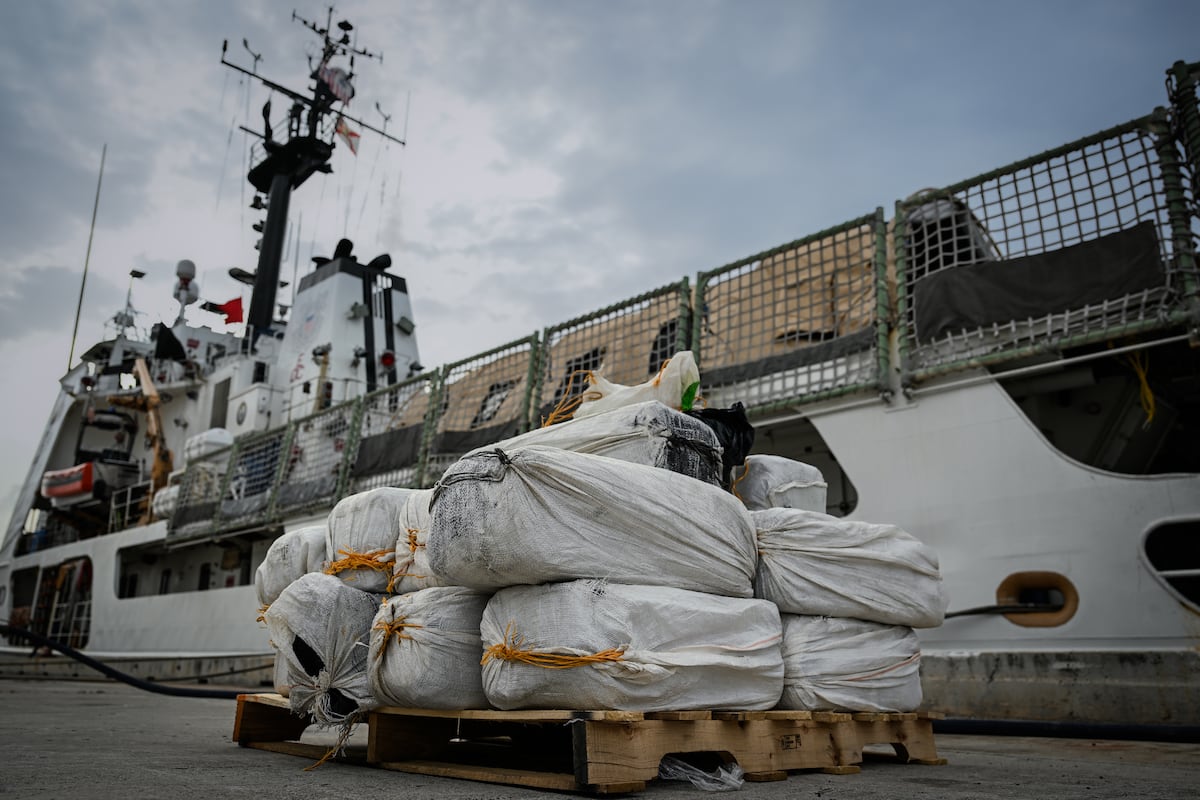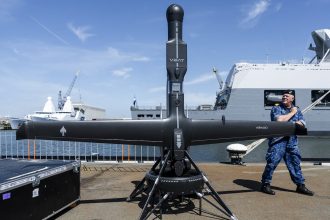To some proponents, using the military is a justified means of mitigating a drug epidemic that killed 80,000 Americans last year. And if military force is to be used, sinking drug vessels is a particularly enticing option: Better to drop bombs in the Caribbean than to send troops on drug raids into Mexico, the theory goes.
Yet sinking ships on the high seas also carries risks, some U.S. experts argue.
“Attacking cartel assets at sea avoids the sovereignty issues that arise with attacks on land,” warn researchers Mark Cancian and Chris Park in an analysis for the Center for International and Strategic Studies, a U.S. think tank, published Sept. 8. “That does not mean that international waters are a free-fire zone.”
Cancian and Park liken employing the U.S. military to attack drug smugglers, “to swatting flies with golden hammers — possible, but other approaches are better. The long-term military solution is to beef up the Coast Guard.”
RELATED
Indeed, maritime drug interdiction has historically been the job of the Coast Guard. While a branch of the U.S. armed forces, the Coast Guard is part of the Department of Homeland Security. It is trained, equipped — and has legal authority — to conduct law enforcement operations.
The U.S. military has long assisted drug interdiction, especially the Navy, which provides surveillance and assists boarding operations. However, actual police functions — such as arresting suspects — were made by Coast Guard Law Enforcement Detachments, or LEDET, that have been stationed on Navy vessels assigned to anti-drug patrols since the 1980s.
But when American missiles destroyed the drug boat Sept. 2, killing 11 suspected members of a Venezuelan gang, the incident seemed less like law enforcement and more like open warfare.
“What was unprecedented in the September 2 strike was the method of interdiction — a missile strike sank the boat without warning and with the crew onboard,” CSIS wrote. “While the Coast Guard does use force in such missions, it typically targets a vessel’s propulsion with machine guns or sniper rifles to disable it, not to destroy the ship while the crew is still on board.”
Troops and police — at least in a democracy — have very different mindsets, training and habits when it comes to lethal force.
“The military sees threats to remove,” Cancian told Defense News. “Law enforcement wants to protect citizens while detaining criminals and collecting evidence.”
The Trump administration argues that classifying the Venezuelan cartel Tren de Aragua as a terrorist organization allows the military to use lethal force. Critics counter that this falls under the War Powers Act of 1973, which requires the president to seek congressional consent. While Congress has never invoked the War Powers Act, and previous administrations have targeted terrorists without congressional approval, this is a novel use of the armed forces.
“Globally, it is rare for military forces to conduct law enforcement activities,” Cancian noted. “Most countries use their coast guard instead.”
The fact that experts are citing the infamous free-fire zones of the Vietnam War is significant. Free-fire zones allowed U.S. forces to attack anyone in a designated area, without first determining if they were an actual enemy. That policy generated furious domestic and international protests, and has become a meme for indiscriminate use of firepower.
“We will see if similar sympathies extend to members of drug cartels,” said Cancian.
CSIS expects that the “military’s primary mission will likely be conducting surveillance across the Caribbean and along the U.S. West Coast.” Missile strikes on ships and land targets are also possible, but “Marine and special operations raids are unlikely because of the high risk.”
The number of Navy ships assigned to U.S. 4th Fleet — the naval component of U.S. Southern Command — has more than doubled between February and August 2025, according to CSIS. In addition, larger vessels are being deployed. Destroyers have been joined by cruisers, littoral combat ships, amphibious transports and attack submarines: Total tonnage soared from 20,000 tons in February to almost 140,000 tons in August.
This raises a strategic argument against tasking the military with drug interdiction. The Navy is already understrength and overworked as it prepares for conflict in the Pacific. So far, the forces deployed to the Caribbean are too small to affect U.S. strength in Asia, according to Cancian. However, “if the administration deploys more forces to the region or makes this a long-term commitment, the forces will be more stressed, and some might need to come from the Pacific.”
And if the Trump administration were to invade Venezuela in the name of anti-drug regime change, this “would certainly stress the U.S. ability to deal with crises in the Pacific,” Cancian said.
The Coast Guard has already received a $25 billion budget boost in Trump’s One Big Beautiful Bill, including 21 new cutters and more than 40 helicopters. However, CSIS argues that the Coast Guard will need even more resources to handle increased counter-drug operations. While one-eighth the size of the Navy, “this small service has 11 statutorily defined missions, including search and rescue, security of 360 ports and 95,000 miles of shoreline, and polar exploration,” CSIS noted.
With the Coast Guard slated to add 15,000 new personnel by 2028, an effort could be made to add 3,000 new members next year, CSIS suggests. In addition, the service life of medium endurance cutters could be extended, procurement of the new offshore patrol cutter accelerated and more national security cutters acquired.
Either way, a policy of sinking drug vessels on sight is problematic, CSIS warned.
“There is an immense amount of traffic in the Caribbean, and nearly all of it is legitimate,” CSIS noted. “Identifying the few bad actors takes a lot of effort.”
“The risk with shooting first and asking questions later is that, sooner or later, forces will make a mistake,” CSIS concluded.
Read the full article here








